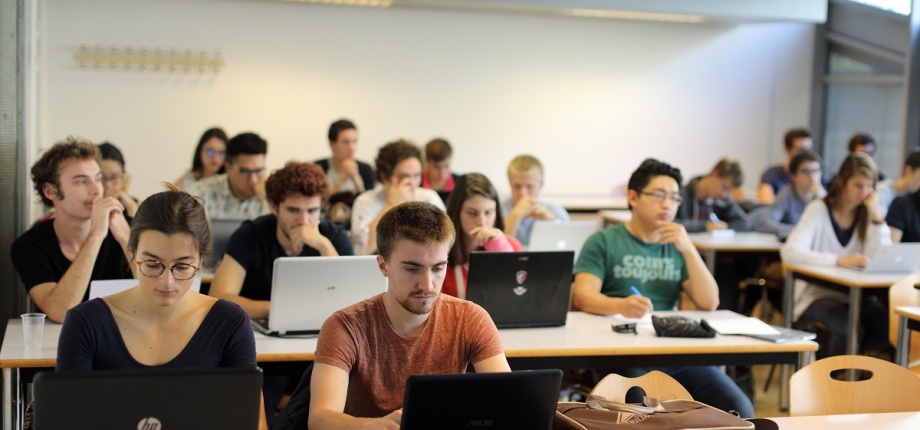Environmental, Energy, and Transportation Economics program
- M2 Environmental Economics - in French
- M2 Economics of Energy - in French
- M2 Prospective Modeling - in French
- M2 Transport and Mobility Economics - in French
Responding to the scale of the economic, energy and environmental challenges of the 21st century (energy security, shifting world growth patterns, climate change, access to water, local atmospheric pollution, biodiversity, demographic pressure…), several ParisTech schools, in partnership with Paris West University, EHESS, IFP-School and INSTN, have pooled their skills in economic research to explore the fundamental features and mechanisms that define economic sustainability.
The objective of the Masters programme is to give future researchers and senior executives a grasp of multiple disciplines (economics, engineering sciences, life sciences) and tools (economic analysis, modelling, institutional analysis, governance) that they can implement in the pursuit of sustainable governance. The aim is to give them a good grounding in the issues and concepts, so that they can respond relevantly and creatively to the challenges of the 21st century: environmental stresses, North-South inequality, demographics, structures of the economic fabric at local and global scale…
The different courses in the Masters programme seek to establish a coherent overview of sustainable development issues, to convey a scientific culture (economics, energy, analysis of key sectors such as transport, agriculture, industry), to implement mathematical modelling tools (statistics, economics, optimisation) and define their scope of application, to raise awareness of the practical challenges of sustainability but also of epistemological, managerial, political and ethical approaches to sustainable development. To achieve this, the partner organisations draw on the skills of academics, researchers and professionals:
- specialists in the principal fields at the interface between the environment and economic development;
- covering all the main practical factors affecting the environmental component of sustainable development;
- providing both modelling skills and an in-depth grounding in the concepts and issues;
- a strong emphasis on the economic approach to problems.
Apart from the PhD option, which is a natural next step from this programme, the skills acquired can be relevant to careers in research departments, in companies facing growing demand for sustainability and environmental evaluation at all levels of their organisation, in regional administration, local authorities, professional bodies and NGOs. Students can join strategic sustainable development departments, Environment, Health and Safety, management units,…
For most students, the programme offers job opportunities in large companies (some 30% of openings in the “Environment” option, a slightly higher rate in the “Energy” option), whether in strategic and economic departments or in “sustainable development” departments..
One important opening is assessment, with 15 to 20% of students finding a job in research and consultancy firms. Carbon finance and energy finance have also attracted significant numbers of students in recent years, notably focusing on the need to identify, manage and certify projects that generate carbon reduction credits, energy-saving certificates or renewable energy certificates. In terms of sectors, it should be noted that there are very significant openings in bioenergy and forestry for students on both options. This is also true for agriculture, and the food and water sectors for the “Environment” option.
In addition to these main openings, in recent years everyone in the business world has faced growing demand for sustainability and environmental assessment at all levels of their organisation. Regional and local authorities, business federations and NGOs thus represent some 15 to 20% of openings, especially in the “Environment” option.
- UE/EEA/Switzerland: €254
- Non-UE/EEA/ Switzerland: €4,317
- engineering student from IP Paris schools: €166
Co-accreditation with Université Paris Saclay, Université Paris Nanterre and IFP School
Admission
These programs are open to French, European, and international students.
To apply for an M1, you must hold a bachelor's degree (awarded by a French institution), an international bachelor's degree, or an equivalent qualification (180 ECTS credits).
Applications for M1 programs must be submitted via the Institut Polytechnique de Paris registration platform or the "Mon Master" website.
To apply for an M2, you must have earned 60 ECTS credits in a Master's program or hold a degree corresponding to 240 ECTS credits, or hold a Master's degree.
Applications for M2 programs must be submitted via the Institut Polytechnique de Paris registration platform.
Engineering students from the Institut Polytechnique de Paris schools have the opportunity to enter directly into the second year of a Master's degree program.
Admission calendar
Application on "Mon Master" website:
- Starting in February 2026
Applications via the Institut Polytechnique de Paris registration platform
- Session 1: from 29 Octobre 2025 to 8 January 2026
- Session 2: from 9 January 2026 to 26 March 2026
- Session 3: from 27 March 2026 au 28 May 2026 (some masters are not open during the 3rd session)

